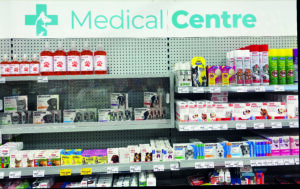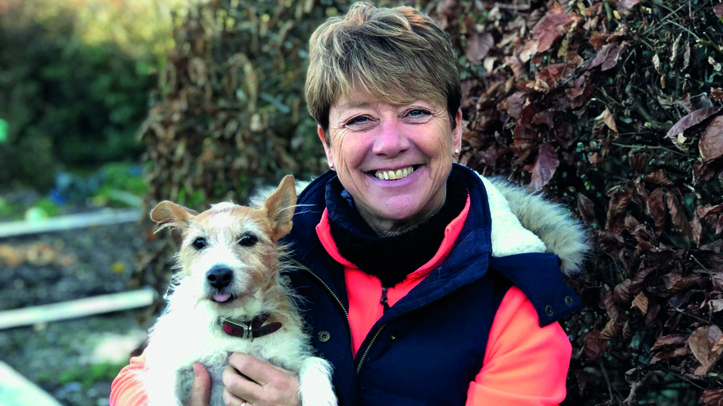Vetpol is one of the regulatory bodies for suitably qualified persons (SQPs), who are qualified to prescribe and supply medicines to companion animals, equines, farm animals, avians or any combination of these. Simon King speaks to Vetpol director Caroline Johnson on the organisation’s plans to grow the number of SQPs in the pet shop sector.
Vetpol was founded by Caroline and Jeremy Johnson in March 2020, just as the Covid-19 pandemic arrived on these shores. Jeremy Johnson is a veterinary surgeon and the pair both have strong backgrounds in veterinary pharmaceuticals, which was how they originally met.
Caroline Johnson said to PBW News: “We’ve worked for a very long time in the vet/pharma channel and between us, we’ve done probably just about every job within the pharmaceutical industry, including sales, management, marketing, and technical services. Jeremy was, at one point, a general manager of an animal health business.
“Four years ago, we’d been looking at the SQP channel, watching it grow and develop, and we decided that we would like to become involved in that sector. That was the point that we made the decision to become a trainer and a regulator of SQPs.”
Johnson said that the pair saw big potential in the SQP channel, which
primarily exists to widen the distribution of veterinary medicines and to give owners best practice advice. It took two years of hard work before the Veterinary Medicines Directorate approved its application to become a regulator.
Johnson continued: “We felt that there were lots of opportunities to streamline the way in which the training took place, so we went down the route of offering online training, specifically designed for people with busy lives, which I think pretty much covers everybody these days. We worked with LANTRA, our awarding body, to produce online exams too, to complete the package.
“Until Vetpol’s launch, the SQP channel had been a very traditional market and things have been done in a traditional way. We felt that by harnessing readily available technology, we could deliver something that would help people with busy lives.”
March 2020 wasn’t the best time for any business, let alone one coming in with a new offering. However, despite that, Vetpol has got more than 300 SQPs on its register, with many more in training.
Johnson said: “I think the opportunity for SQPs in pet shops is vast. We identified companion animal as being a huge area for potential growth before lockdown, at the point that we started on this journey.
“With pet shops, of course, we’ve got the additional advantage now
that, because of Covid, the pet population has absolutely gone through the roof.
“If you look at veterinary medicines, the biggest sector out there is in flea and worm treatments, particularly flea treatments, which is absolutely vast – we’re talking millions of pounds that owners are spending.”
Obviously, all cats and dogs require flea treatment and worming so the market is huge and only likely to get bigger.
“Vetpol SQPs are holistically trained,” she continued. “We train our SQPs to know a lot about animal health and welfare and the medicines fit in as part of that. We also train them in communication skills, which means Vetpol SQPs are well positioned to become ambassadors for animal welfare.
“In the highly competitive companion animal sector, store owners and managers can put themselves in a position with highly trained staff that can then act as a frontline with owners, to add value to the transaction and give advice on health and welfare – that gives you a competitive advantage, and the owners a reason to come to your pet shop, as opposed to going online.
“With so many people shopping online, we’ve got to give people a reason to actually visit the pet shop; what better way than having the skills and expertise? Because, actually, owners want that too.”
All SQPs have got a professional obligation to undertake continuing professional development (CPD).
“For us, the importance of CPD is about the skills development,” Johnson said. “It’s about having a commitment to ongoing learning as that’s good for the individual, the SQP, it’s good for the owner, it’s good for the pets and it’s good for the retailer.
“We’re accrediting an increasing range of manufacturer-supported CPD.”
Vetpol launched an online CPD event, titled Munch & Learn, last year, specifically for the companion animal sector.
“We felt that there wasn’t as wide a range of relevant, interesting, engaging CPD as there could be,” Johnson explained. “As a regulator, we are prepared to accept a certain proportion of CPD that comes from nonaccredited sources, providing that the SQP writes a review, stating why it was useful, and why it’s relevant to their role – that ties in with reflective learning.”
The second Munch & Learn event took place in September 2021 and the third one is planned for October 21, 2022. Johnson said that pet shop staff, managers and owners are invited to attend October’s Munch & Learn event. Vetpol has developed a number of branded solutions to promote that its SQPs are working in-store, and Johnson said that some retailers are now using the V+ brand in-store.
“We’ve got badges coming in the next few weeks, which will provide a link between the products that are on sale and the person who’s qualified to sell them,” she said. “We want to develop our trademarks in stores to establish that link. The message is that we sell veterinary medicines and we’re qualified to supply them and to give you advice.”
Johnson believes that there are opportunities for pet shops and other allied professional groups to work together with vet practices.
“We see an increasing number of opportunities for vet practices and pet shops to work closer together for mutual benefit,” she said. “These are the two sectors that we think can deliver the greatest amount of growth and the greatest number of SQPs.”
Vetpol is already working with a number of pet retailers, including Jollyes, which is committed to the SQP channel and the development of its own SQPs.

Johnson advised pet shop staff to have a look at the organisation’s website.
“Contact us and we’ll give you whatever information and support you need,” she said. “The training materials are online, and they’re designed for people with busy lives to dip in and dip out. We don’t have a target for how many SQPs will join the Vetpol register from the pet shop channel, but we think the potential is considerable.”
Johnson said it’s a challenge to get a Level 4 SQP qualification, but Vetpol has simplified it and made training more accessible.
“The most effective warmers and flea treatments are those that are sold by and supplied by professional people,” she said. “Owners have either got to go to the veterinary practice to get these things or they go to a pet shop that employs SQPs.
“The best advice you can get is in a store that has an SQP working. I’d go further and say it’s better if you’ve got more than one SQP, because if you only have one then you have to take products off sale when an SQP goes to lunch, has a sick day or is on holiday.”

For information about Vetpol, visit: https://Vetpol.uk



